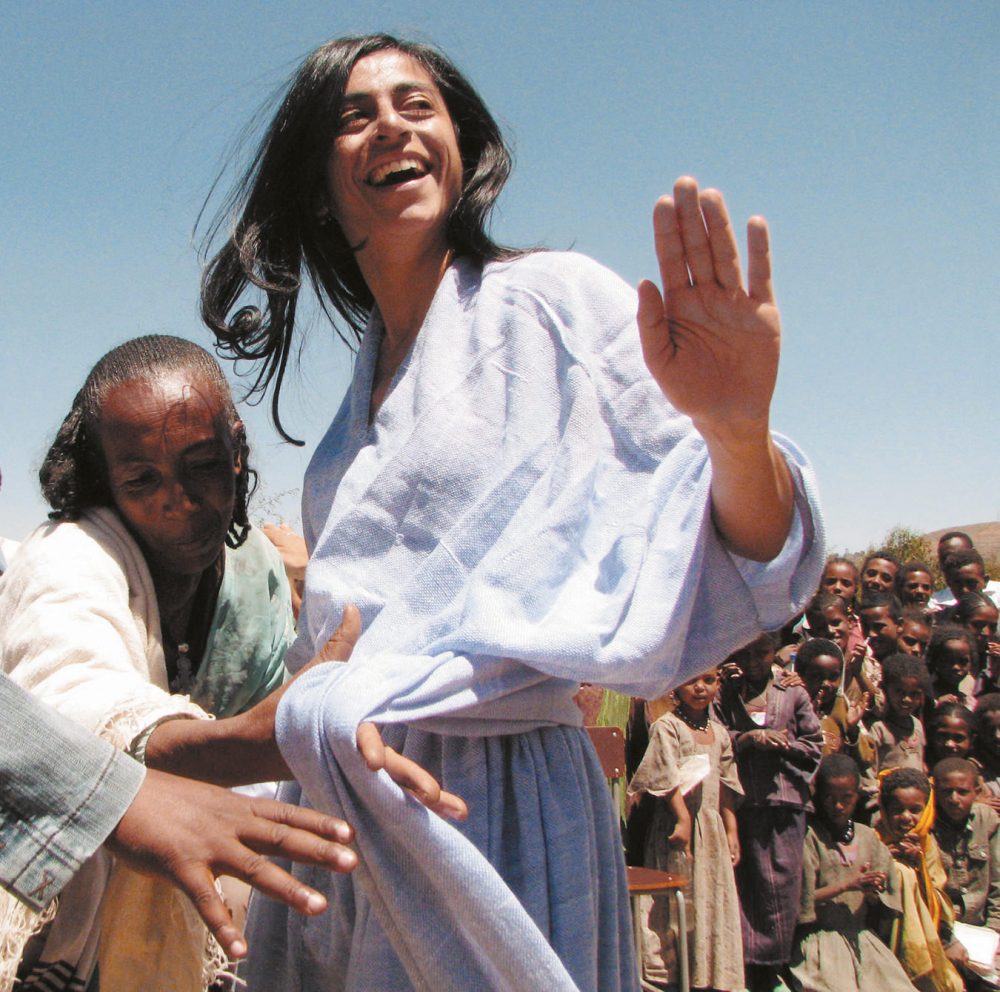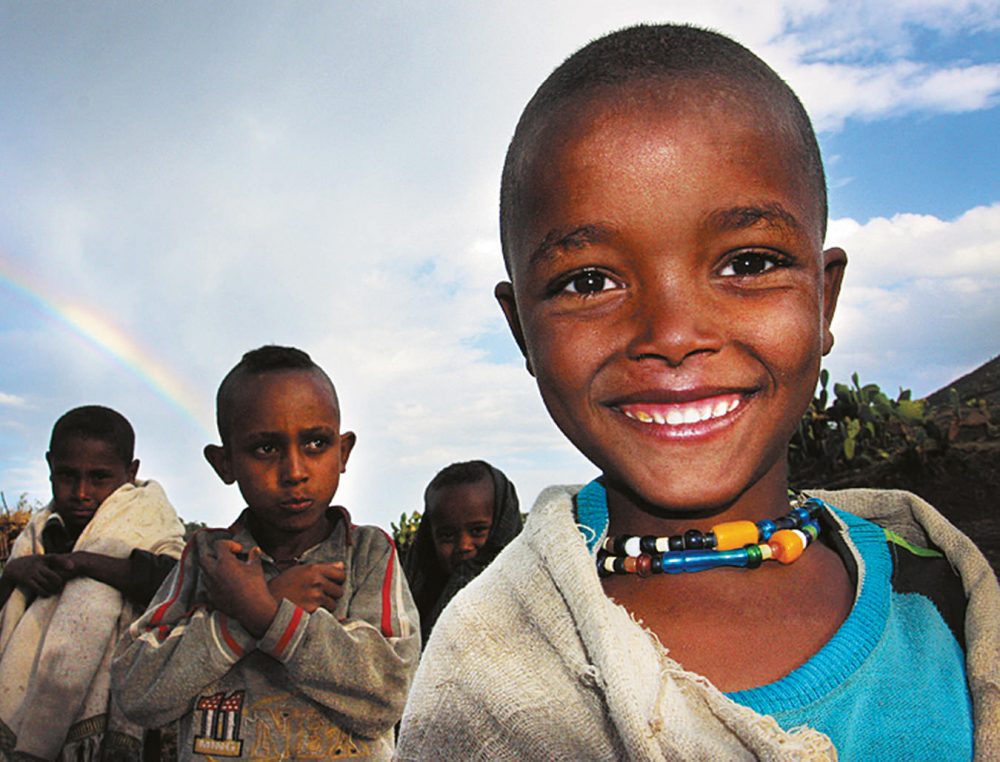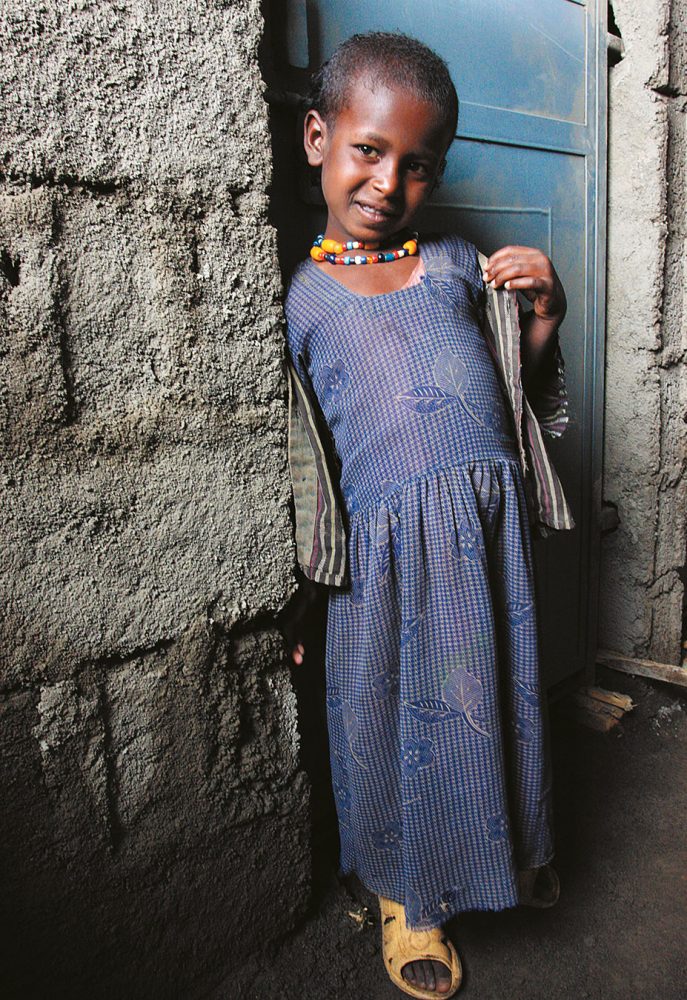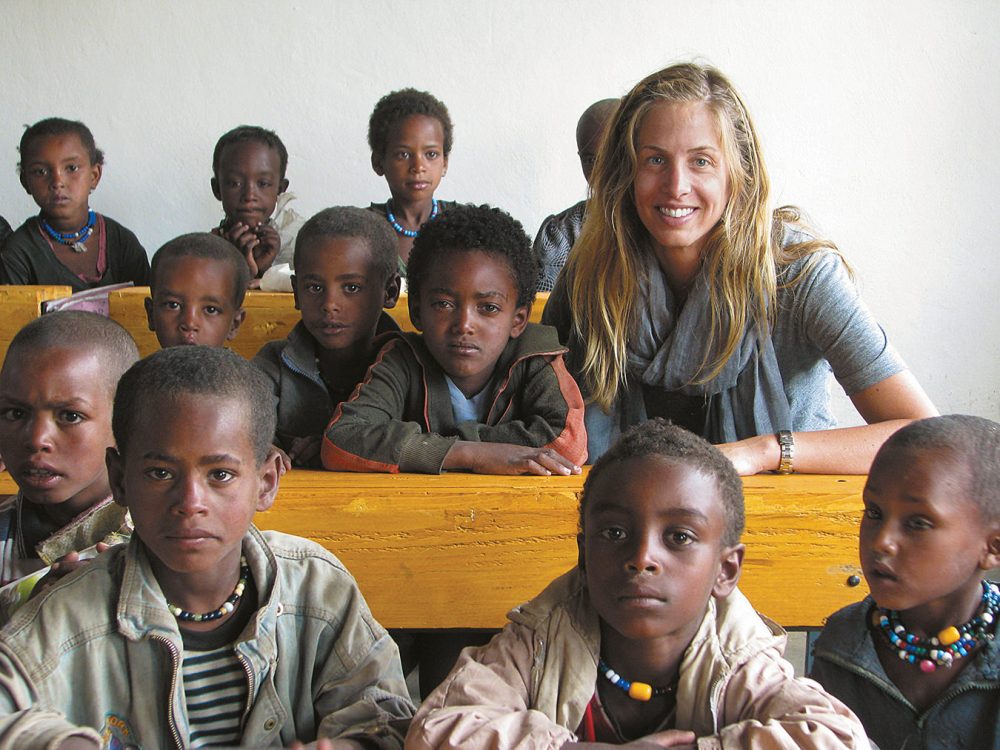Philanthropy, it seems, is undergoing a fascinating and perplexing shift. Many donors no longer feel completely satisfied with old ideas and practices, while bolder organizations are striking out in new directions. They recognize that doing good means making better choices, and that to make real gains, they need ingenuity, creativity and, perhaps most importantly, personal connections with those they want to help.
To sit down for a chat with Shannon Wilson, co-founder of Imagine1Day, is to unavoidably become inspired. Maybe it’s her fresh and optimistic air, or perhaps it’s her deeply genuine nature, but no matter what, you’ll come away with a drive, wanting to make a difference. She and husband Chip, founder of Lululemon Athletica, launched Imagine1Day after the yoga-wear line became a publicly traded company in 2007. They took the principles that underpinned Lululemon’s success and applied them to something beyond big business: a charity that now brings quality primary education to more than 10,000 children in Ethiopia, making a direct impact in 33 communities in the country’s northern regions.
The Wilsons always knew that they wanted to contribute to a new future for children with Imagine1Day—but as Shannon Wilson explains, they thought carefully about how they could make the biggest impact, and where. Ethiopia was a natural choice of location: there are more than 200,000 classrooms needed to replace provisional schools that operate in makeshift conditions, rain or shine.
“We wanted to provide training, schools and personal development, and to quantifiably know when our work is done,” Wilson says, “so that the community can take their development to the next level.” The Imagine1Day model rejects the idea of creating dependency; instead, their team seeks to empower the communities they assist by providing them with economic and educational infrastructure, problem-solving abilities and, therefore, the confidence needed to tackle issues themselves, head on.
“We see ourselves as a community, not a charity, where people are inspired to give in ways that suit their passions, to try new things, to stand up to possibility and become elevated in the process.”
While most charities are well meaning, they are not always on solid footing. Donors are sometimes left wondering how much of their donation will actually go directly to the people in need. In making their initial endowment to Imagine1Day, Shannon and Chip wanted to eliminate that question. Today, it allows donors the option to decide whether or not their funds are to be used towards administrative costs. “I want to know for sure that if people make a contribution through their own passion for the children, that those funds go directly to the children,” Wilson reflects.
This is just one example of what makes this organization different. Another striking example is the vision and leadership Imagine1Day takes in creating community connectedness—both locally and in Ethiopia. Sapna Dayal, Imagine1Day’s executive director, says, “We see ourselves as a community, not a charity, where people are inspired to give in ways that suit their passions, to try new things, to stand up to possibility and become elevated in the process. We must ask ourselves, ‘Who do we need to be as people to create a future as we wish?’ ” Her passion to motivate change and her sense of personal responsibility are infectious; it transfers to the entire team, which includes seven Ethiopian staffers who work tirelessly—within the context of primary education and teacher training—to create awareness about disease prevention, ecological development, economic self-sustainability and equality for all children, so that the life skills they learn will carry forward into their communities over time.
Meanwhile, here in Canada, free-flowing gatherings of similarly minded people, an interactive giving platform, and blogs and social media are all used to share Imagine1Days’s vision. It’s yet another markedly different way that they inspire social responsibility. And through these efforts, extraordinary things start to happen. When donors are asked why they chose Imagine1Day, they bubble with enthusiasm. “It’s a place where I can connect with like-minded people to have fun while contributing,” explains one contributor.
“You can’t avoid the spiritual experience. … It’s where life began as we know it and you feel it in the spirit of the people and their willingness to endure.”
And fun is certainly a drawing factor: Imagine1Day has done away with the outdated notion that altruism must involve putting on a tux and doling out cash at the live auction for yet another gala dinner. Instead, the organization puts the donor in the driver’s seat, for what seems to be a joy-filled ride. Through “creatributions” (a term coined by the founders), supporters can put their passion into action by designing and implementating a personal project that is a true reflection of their interests and fundraising goals. With support from the Imagine1Day team, they may be able to accomplish something they never thought possible, all in the name of changing the lives of children. Creatributions take many forms, and have included a choreographed flash mob during the Vancouver 2010 Olympic Winter Games, a T-shirt design project created to elevate art and creativity, and the transformation of an ordinary space into an haute cuisine restaurant for only one night. Creatributions happen everywhere: in schools, within families and in businesses small and large.
This fall, a group of 17 creatributors will extend themselves beyond dollars, cents and time, and even beyond borders, to participate in a philanthropic vacation to Ethiopia with Imagine1Day. Though the tour is recreational, it’s intention is meaningful. Envision being transported into the heart of the community in which you hope to make a difference, meeting the children and seeing first-hand how much it takes to make a school whole: new latrines, water points and everything else. Imagine further, and not only will you help build that school, but you’ll experience the landscape, the personal challenges it brings, the culture and become an unofficial ambassador of the people you’re assisting. If you’re like Wilson, you might even “make a sacred connection to the birthplace of civilization.” She has been both inspired and made wiser by her work in Ethiopia. “You can’t avoid the spiritual experience. … It’s where life began as we know it and you feel it in the spirit of the people and their willingness to endure … Flowing rivers have been transformed into dust. I look at this history and see parallels for our future if we don’t look after our Earth. We think we can control so much—it’s humbling.”
Philanthropic vacations like those of Imagine1Day are an intelligent direction to take in navigating the new currents of giving; a personal connection like that runs deep. But perhaps what is most inspiring about Imagine1Day is the way they create opportunities for their supporters that allow them to define philanthropy in their own terms, individual by individual, and to learn for themselves what experiments will multiply to create the greatest good. Once a generation or two has passed, we should hope to look back and notice a change in the landscape of social responsibility—not only here, but in Ethiopia and beyond. And hearing Sapna Dayal and Shannon Wilson speak about their vision, with their leadership, it seems entirely possible. Dust into rivers.












